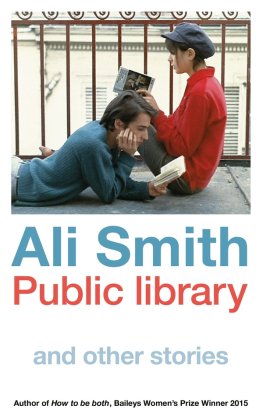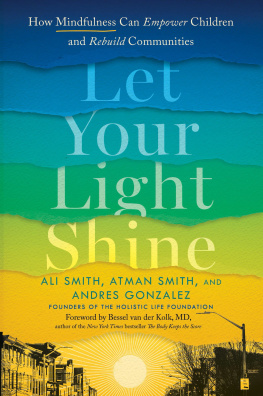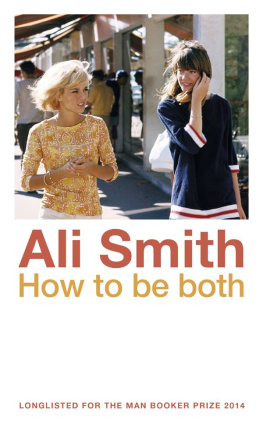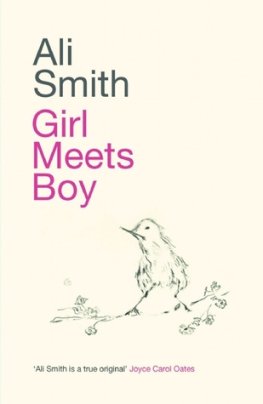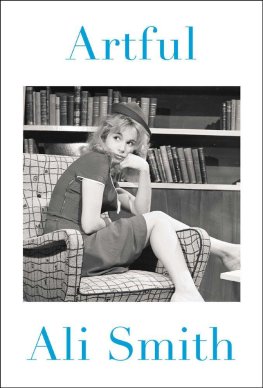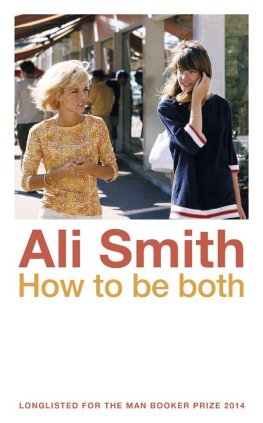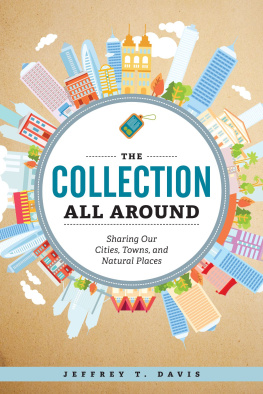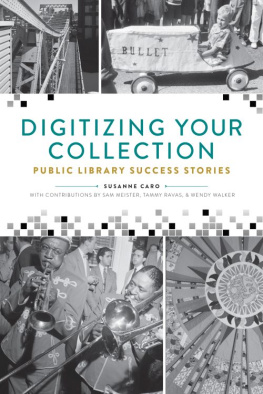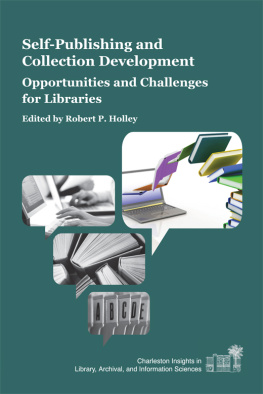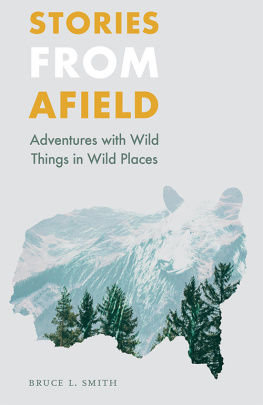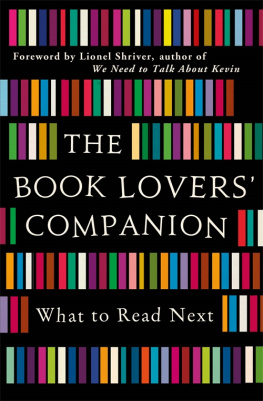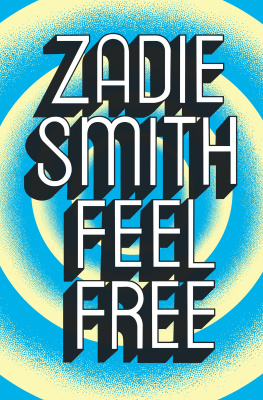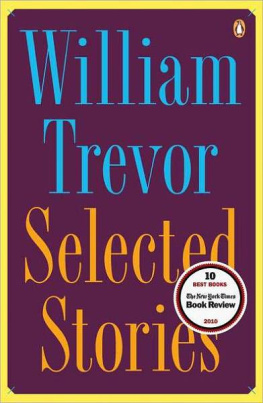Ali Smith
Public Library and Other Stories
For Hazel Beamish
and for Sarah Wood
This same book in a strangers hands, half-known.
Those readers, kindred spirits, almost friends.
You are in transition; you are on the threshold.
The library is the place that gets you. Pure gold.
Jackie Kay
O magic place it was still open thank God.
Alexandra Harris
Heres a true story. Simon, my editor, and I had been meeting to talk about how to put together this book youre reading right now. We set off on a short walk across central London to his office to photocopy some stories Id brought with me.
Just off Covent Garden we saw a building with the word LIBRARY above its doors.
It didnt look like a library. It looked like a fancy shop.
What do you think it is? Simon said.
Lets see, I said.
We crossed the road and went in.
Inside everything was painted black. There was a little vestibule and in it a woman was standing behind a high reception desk. She smiled a hello. Further in, straight ahead of us, I could just glimpse some people sitting at a table and we could hear from behind a thin partition wall the sounds of people drinking and talking.
Hello, we said. Is this a library?
The woman lost her smile.
No, she said.
A man came through from behind the partition. Hello, he said. Can I help at all?
We saw the word library, Simon said. Was this a library once? I said. Shes a writer, Simon said by way of explaining. Hes an editor, I said.
Were a private members club, the man said. We also have a select number of hotel rooms.
I picked up a glossy leaflet from a pile on the desk about some kind of food promotion or taster deal. Simon picked up a card.
Have you actually got actual books? I said.
We do do some books as a feature. Please help yourself to a card, the man said a bit pointedly since we already had.
(Later, when I got home, I unfolded the advert Id taken, which was for a company working with Library, to produce three-course meals which allowed diners to relive your favourite musicals (Charlie and the Chocolate Factory | Phantom of the Opera | Les Misrables | Matilda). I typed in the Library website address off the advert. When it came up I noticed for the first time that a central part of the textual design of the use of the word Library was the thin line drawn through the middle of it: Library.
This is what Library listed next to the photographs of its 5 luxurious, individually designed, air-conditioned rooms with many modern amenities and comfortable beds: Terrace Bar 24 Hour Concierge Ground floor lounge with stage and bar Massage and Beauty treatment room Kitchen with Chefs table (April 2015) Private Dining and boardroom with conferencing Double mezzanine with bridge Smoking Terrace Access to rare Library books).
Simon pocketed the card. I folded the advert about the food promotion into my inside pocket.
Thanks very much, we said.
Then we left.
We crossed the road and stopped on the pavement opposite, where wed first seen the word above the door. We looked back at it. Simon shrugged.
Library, he said.
Now we know, I said.
I had come to the conclusion. I had nothing more to say. I had looked in the cupboard and found it was bare. I had known in my bones it was over. I had reached the end of my tether. I had dug until Id hit rock bottom. I had gone past the point of no return. I had come to the end of the line.
But at the end of the line, when the train stopped, like everybody else I got off and walked back along the platform to the exit. I scrabbled in my pocket for the ticket, fed the ticket into the slot in the machine. The machine snatched it with what felt like volition but what was really only automation, then opened its padded gates for me and shut them behind me. Then I walked out past the taxis, across the dismal car park and up the pedestrian bridge.
From here I could see the empty train, the same train wed all just been on, as it shunted from the platform to wherever the empty trains go. From this angle I could see into the carriages, in fact I could see right into the carriage Id just travelled to the end of the line in.
The carriage had been packed, all the seats taken ten minutes before the train left and the train still filling with people until the moment before its doors closed on us; the journey had been an exercise in aloofness, with people who didnt know each other swaying towards then carefully away from each other in the aisles, people trying to not sway into each other in the doorways, people towering above the rather buxom woman in the wheelchair, reading the magazine. Shed been there in the special wheelchair-designated place when I boarded the train. Somehow the swaying standing people were worse above her head, I thought, than they were above the heads of people just sitting ordinarily in the train seats; somehow it was the last word in rudeness, that the edge of one mans open jacket kept brushing against the back of her head.
Thats how I knew, from up here on the slant of the bridge, that this train below was the same train Id just been on, and thats how I could spot exactly the carriage Id been on, because that woman in the wheelchair whod been in the same carriage as me was still there on that empty train, I could see from here that she was leaning forward in her chair and beating on the train door with her fist. I could see she was yelling. I knew she was making a lot of noise and I knew I couldnt hear any of it.
I watched the silent beat of her. Then the train slid out of view.
The driver will find her, I thought. Surely they check to make sure their trains are empty. Surely people must fall asleep or be caught on trains like that all the time. Probably she has a mobile and has called people and let them know. Its even possible that she wants to be on that train, that shes meant to be on it, there, alone.
But through the scratchy perspex of the other side of the pedestrian bridge I could see that there was a footworn footpath going down towards the rails, the kind we used to make in the riverbanks and slopes of the fields when I was a child, the kind that people make in places where paths arent supposed to be.
At the bottom of the path the barbed-wire fence that shut the station off from the public was splayed open the size of a big dog or a crouching adult. Next to this hole was a sign which said, in letters large enough for me to be able to read them from here, that trespassing was prohibited, that the only people allowed past this point were rail personnel. If we find you trespassing you will be fined.
I found I was thinking about the person, or people, whod originally worded that sign. Had there been special meetings held to decide the wording? Did they, or he, or she, pause for a moment at all over find and fined?
And why, anyway, did the word fine mean a payment for doing something illegal at the same time as it meant everything from okay to really grand? And was it at all connected that the word grand could also mean a thousand pounds? Did that mean that notions of fineness and grandness, in their travelling etymologies, were often tied up with notions of money? I hadnt a clue. But I had an urge to look them up in a dictionary and see. It was the first urge to do such a thing Id had in quite a while.
I turned round. I retraced my steps down the slant of the bridge and under the little barrier between the bridge and the grassy bank. I went down the path towards the hole in the bent-back fence. I slid myself through the space without catching my clothes on any of the sharp cut-open bits of it and I stood up straight again in the litter next to the bramble bushes. I glanced one way then the other along the set of rails in front of me. A train was up ahead of me. I wondered if it was the right train. There was something fine in it, just walking along a forbidden track, thinking pointlessly about words. Travelling etymologies, that was a good phrase. It would be a good name for a rock band. It would be a good social-anthropological name for a tribe of people who jumped rolling-stock and lived on it, sheltering under waterproofed tarpaulins when it rained, sitting when it was sunny on the footplate spaces, if thats what they were called, or lying stretched out on the tops of the cargoes of carriages; reprobates, meaningful dropouts, living a freer, more meaningful life than any of us others was able to choose. The Travelling Etymologies. It was a good idea, and now, background-murmuring through my head again, for the first time in ages, was a welcome sound, the sound of the long thin neverending-seeming rolling-stock of words, the sound of life and industry, word after word after word coupled to each other by tough little iron joists, travelling from the past through the present to the future like rolling stones that gather moss after all.

